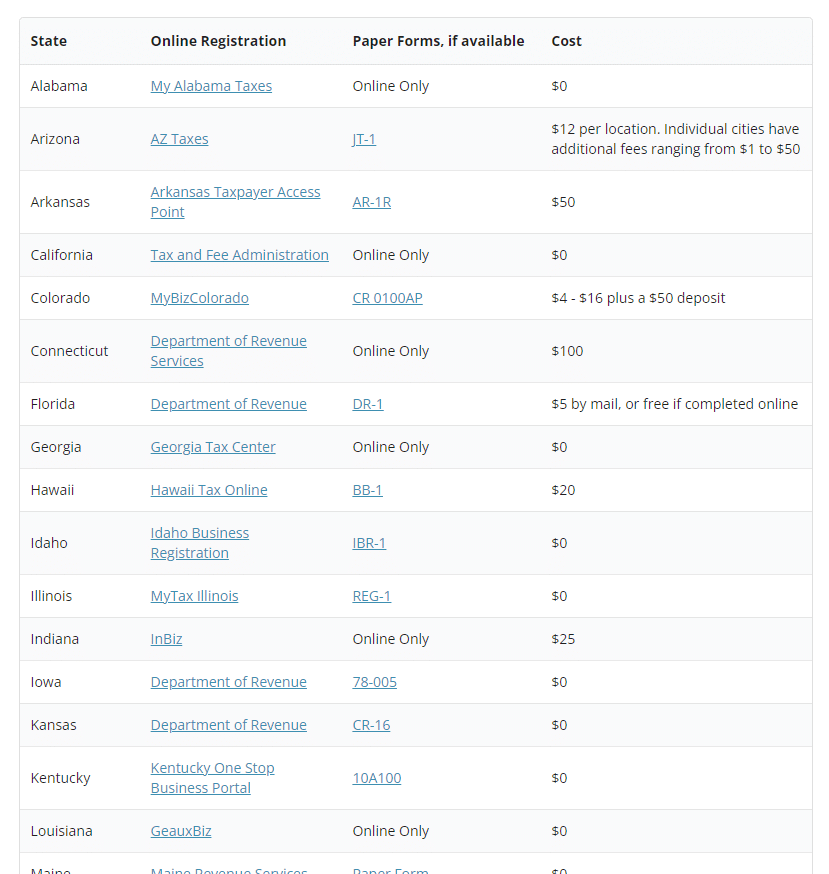Today, around 23% of all online sales go through a dropshippper. Retail experts expect the industry to grow by 28.8% by 2025.
The hardest part about becoming a dropshipper is setting up your business. This guide will provide you with crucial information on how to start dropshipping.
- What Is Dropshipping?
- #1 Lay the Foundation: Niche Selection and Supplier Relationships
- #2 Build Your Business Base: Crafting Your Online Presence
- #3 Ensuring Compliance and Financial Preparedness
- #4 Strategize for Growth: Competitive Research and Marketing
- #5 Analyze and Adapt: Sustainable Business Strategies
- Final Remarks
What Is Dropshipping?
Before choosing this path, make sure you understand precisely what it involves.
Dropshipping allows you to sell products online without maintaining an inventory.
You partner with a third party who supplies and ships the product based on your order. The third-party supplier could be a manufacturer or a distributor. Consider these five steps that will help you to get started.
#1 Lay the Foundation: Niche Selection and Supplier Relationships
As with most things in business, choosing a niche is the best place to start.
Technically, anything you can buy online, you could sell as a dropshipper. Some industries, such as electronics and toys, do better than others in this format.
Understanding market trends
You also want to consider the market trends before selecting a niche. Setting up a dropshipping platform for an industry with very little activity may affect your profit margin.
As a businessperson, your job is to figure out what your audience wants. To do that, you must know who your audience is and what they buy most. Pick a target audience you understand, then choose an industry that caters to them. For example, if your ideal demographic is parents, you might select educational toys as your niche.
Establishing strong supplier relationships
Once you establish what products you want to sell, finding the right supplies and building those relationships will likely be your biggest challenge. Dropshipping is a system that benefits both the seller and the supplier, though.
Working with a dropshipper can significantly increase sales for a manufacturer. And, of course, you have nothing to sell without the supplier. Finding suitable suppliers will define your business.
What to consider when looking for suppliers
Some things to consider include:
- Location
- Product pricing
- Customer service
- Product quality
The final consideration in our dropshipping tips for choosing suppliers is their pricing plan. Not all manufacturers will let you dropship their products for free. Some may charge a monthly subscription plan. It’s up to you to decide if a fee is worth it.
#2 Build Your Business Base: Crafting Your Online Presence
The next stage of your business development is establishing yourself online. Dropshipping is an e-commerce modality, so you need an online store.
Creating a well-structured website
Your website is what attracts both customers and suppliers to your business. It is not something you should just throw up haphazardly. It should be easy to navigate, aesthetically appealing, and informative.
Some basics you need are:
- Effective and easy-to-use navigation that includes product categorization – You want your customers to access products without jumping through a lot of hoops.
- Quality images and multimedia – Nothing pushes customers away faster than poor-quality page design and graphics. The images should load quickly and be clear. Those for products must be accurate and not misleading.
- Contact information – This is something both customers and Google will look for. Provide contact information on every page.
- eCommerce payment gateway – This allows the customers to pay for products on your site. It should be user-friendly and provide details such as the cost of shipping and handling plus taxes.
The website is your store, so give it the same respect you would a brick-and-mortar location.

Utilizing high-quality blog content
The other thing your website needs is an informative and well-written blog. Adding a blog to your website is good SEO and increases your online presence.
The key to a successful blog is in the writing and content strategy. The topics should interest your target audience to drive them to your website. For example, if you sell toys, you might create blog topics that interest parents.
Blogging is an essential part of doing business, but not the easiest. It’s not something you have to do on your own, though. WriterAccess connects you to content marketing professionals like strategists, editors, and some of the top writing talent in the world.
It also gives you the tools to create topics, research keywords, and develop a pool of writers. With proper support, the blog will be well-written and steer potential customers to your website.
#3 Ensuring Compliance and Financial Preparedness
Dropshipping is a business venture, so you must know about tax responsibilities and compliance issues.
Navigating tax implications
There are tax obligations you may encounter as a dropshipper:
- Income
- Sales
- Source
- Customs
Income tax refers to the profit you make as a business person. Ideally, you will pay estimated income tax quarterly. That will keep you from paying a penalty when you file your federal return.
Like any retailer, you will be responsible for paying sales tax on products you sell. You’ll need to know what the sales tax is in the state in which your customer resides if there is a nexus.
Nexus refers to a business connection to the state. You automatically have a nexus if you have a physical presence in a state. You also have a nexus if you do a set amount of business in a state. The threshold varies by state. This means you could pay sales tax in multiple states if you have a nexus in each.
Source tax is the sales tax the supplier charges you. Custom duty tax is what it costs to bring goods into one country from another one. So, if you ship products from China, for instance, you would pay a tax for that product to enter the U.S.
Establishing legal compliance
In some states, you need a license to sell to residents there. That is true even if you work out of another state. This does not apply to all states or all products.
Start by researching the regulations in your state, county, and city. Next, consult an online list by state of legal requirements for dropshipping. Make sure your list is timely, and double-check the information on the state government website.
Financial considerations: Budgeting for success
Once you have all the operating and legal costs in front of you, make a budget. The initial cost of dropshipping isn’t high, but you must pay for a domain name, website, marketing, and initial products.
Figure out your start-up costs, and then create a budget for yourself. It will take time to see income from your business, so have a plan for managing your finances.

#4 Strategize for Growth: Competitive Research and Marketing
The most significant part of your job as a dropshipper is marketing.
Conducting thorough competitive research
You must see what other businesses are doing to market your products effectively. That is what marketing experts refer to as competitive research.
By checking out the competition in your market, you can see what they do right and what doesn’t work well for them. You also get an idea of how your pricing lines up with theirs.
Make a list of keywords that apply to your products and target audience. As you do searches on them, write down the brand names that pop up most. Those are the websites you want to visit.
Crafting a robust marketing strategy
With that information, you can create a strategy that will help you develop an online presence and drive traffic to your e-commerce store. You don’t have to spend a lot on marketing. Many options, like social media, blogging, and email newsletters, won’t cost anything. Focus on these first.
#5 Analyze and Adapt: Sustainable Business Strategies
Dropshipping is a convenient and relatively low-risk way to start a business. There are downsides, though. It can take time to see a profit, and the margins are slim. It is also highly competitive.
Iterative growth and adaptation
To make it work, you need to assess your standing and look for ways to improve constantly. Analyze metrics closely to determine what is working and what isn’t.
What is your top seller? What product doesn’t sell? Will better marketing matter? What is trending in your niche? What feedback are you getting from customers? The better you research before and after you start the company, the higher your chances of success.
Final Remarks
Like all business ventures, dropshipping starts with a concept, grows in stages, and works when you put in the effort. Remember this guide to dropshipping when creating your path:
- Target your audience
- Choose a product niche
- Find suppliers
- Create a website
- Develop a marketing strategy
- Assess your progress and make changes as needed
And remember: when it comes time for content production, let us help.
Try WriterAccess for free and see what effective content creation looks like for your dropshipping business.








